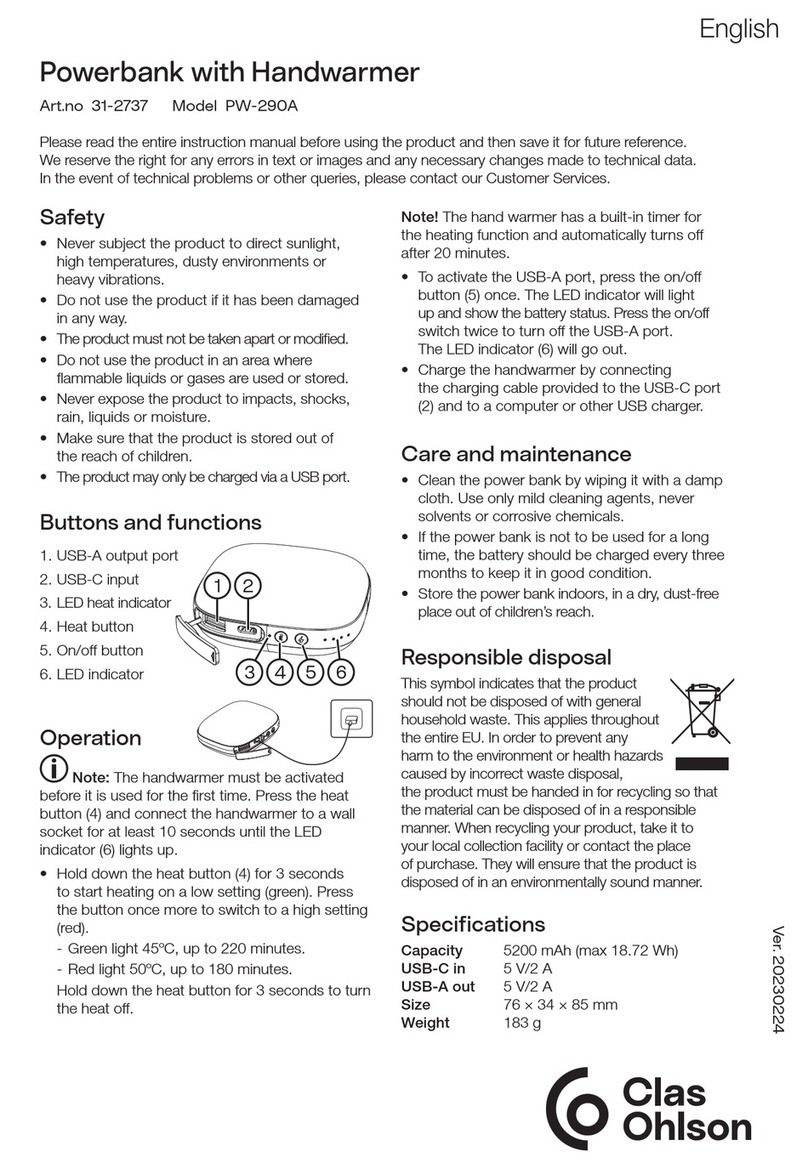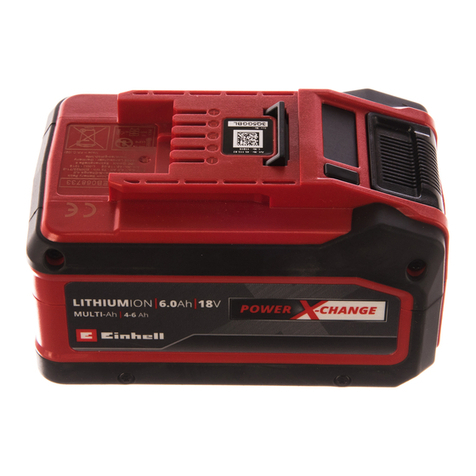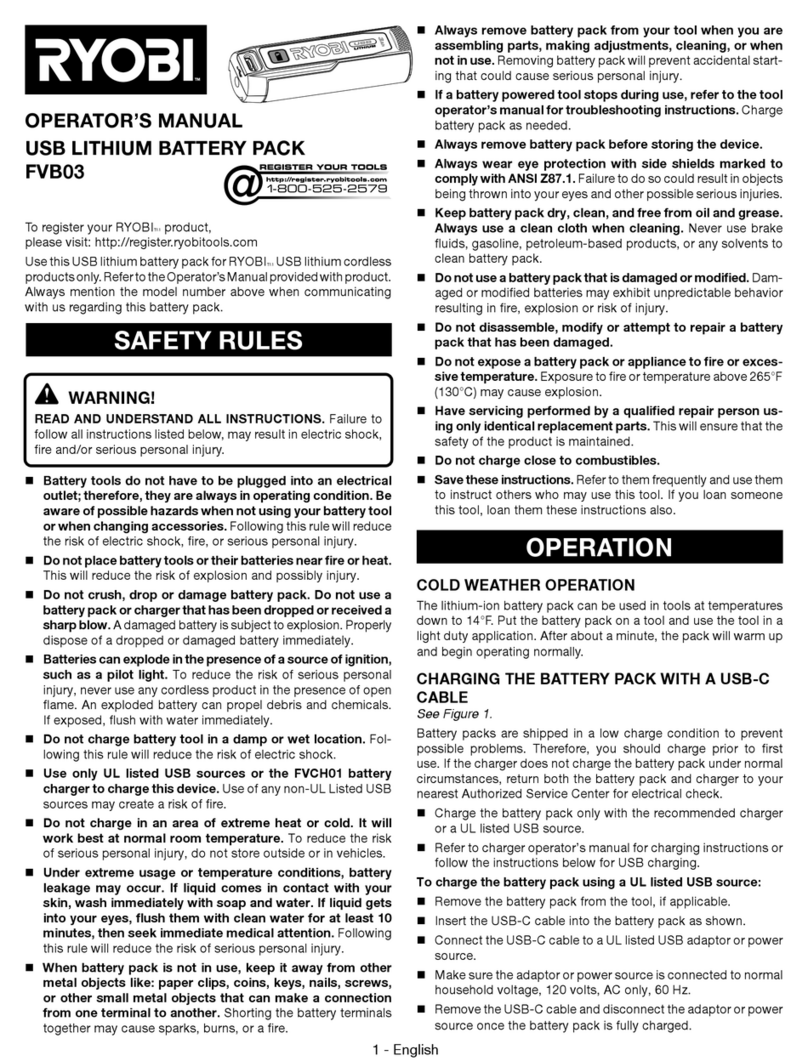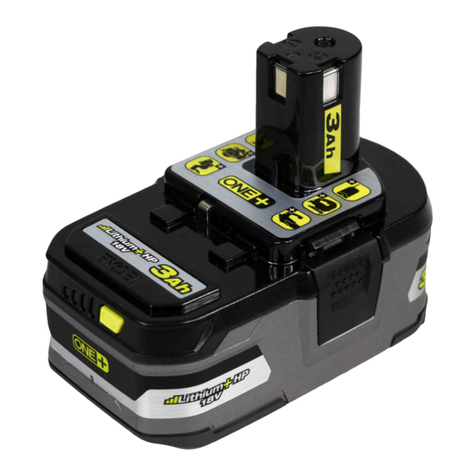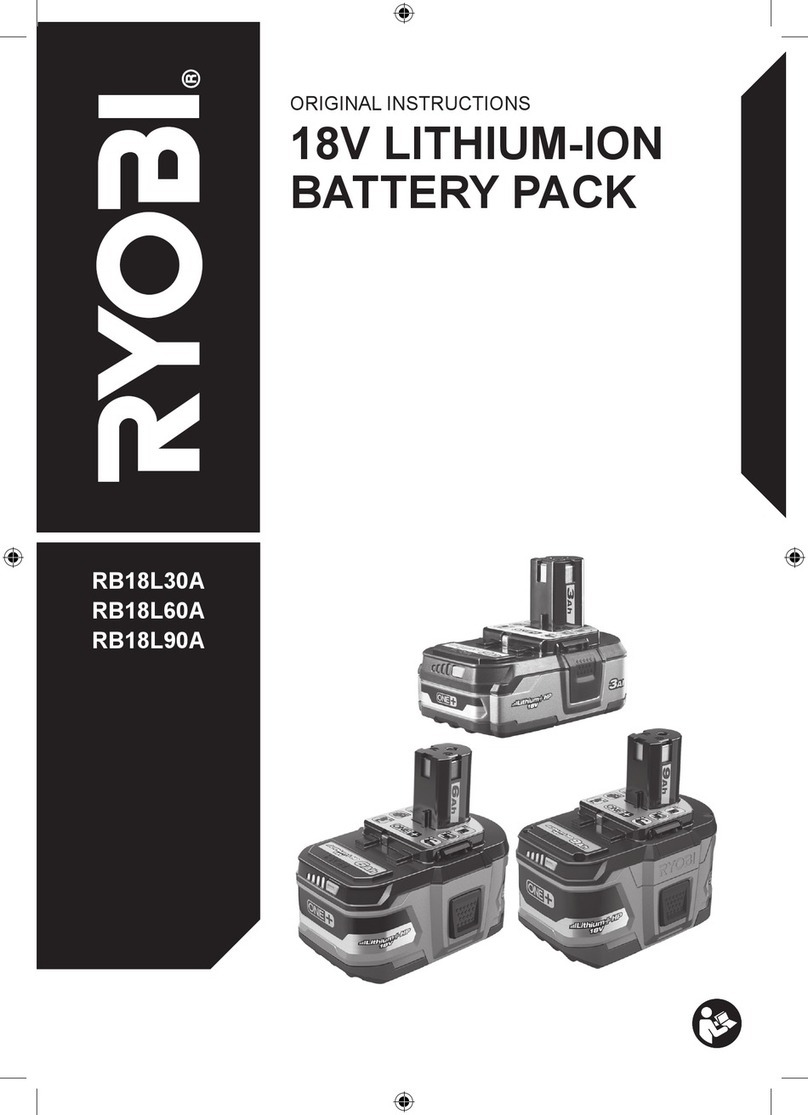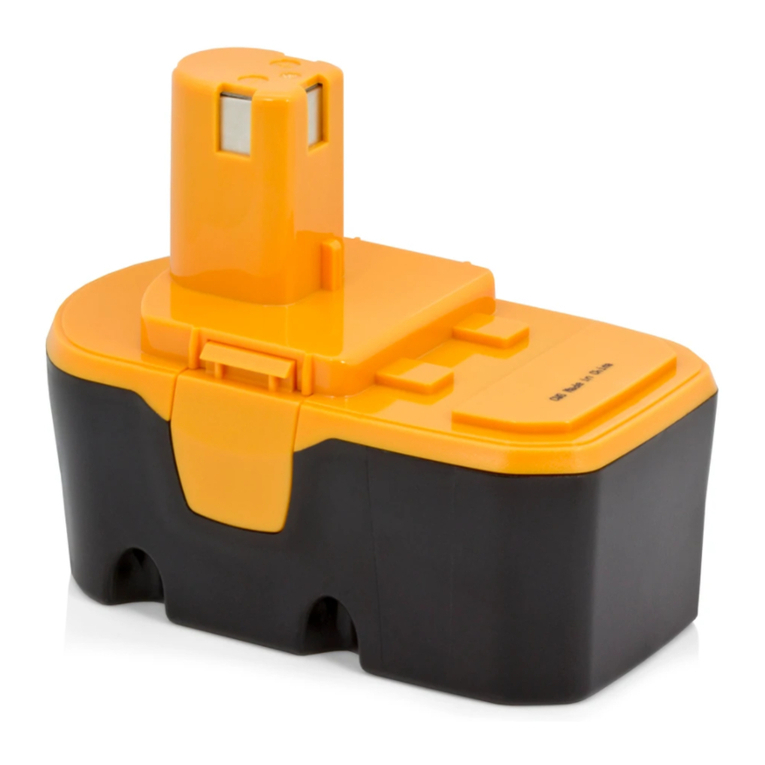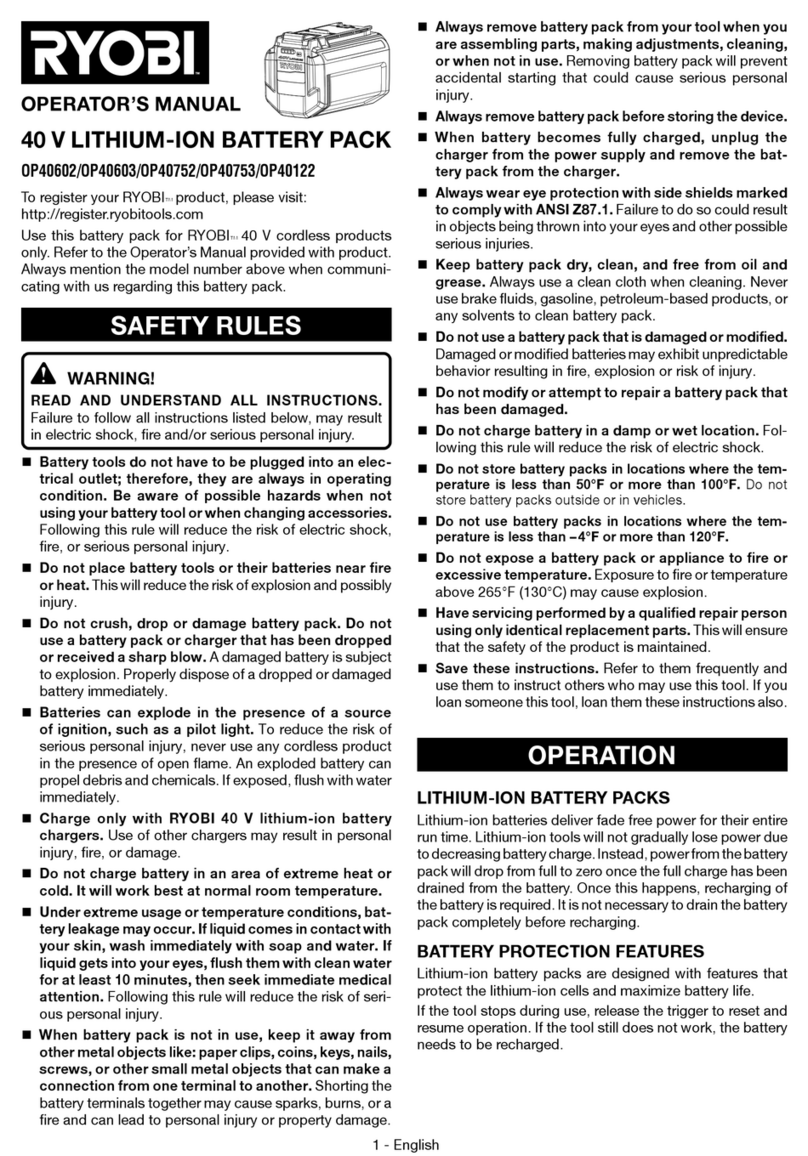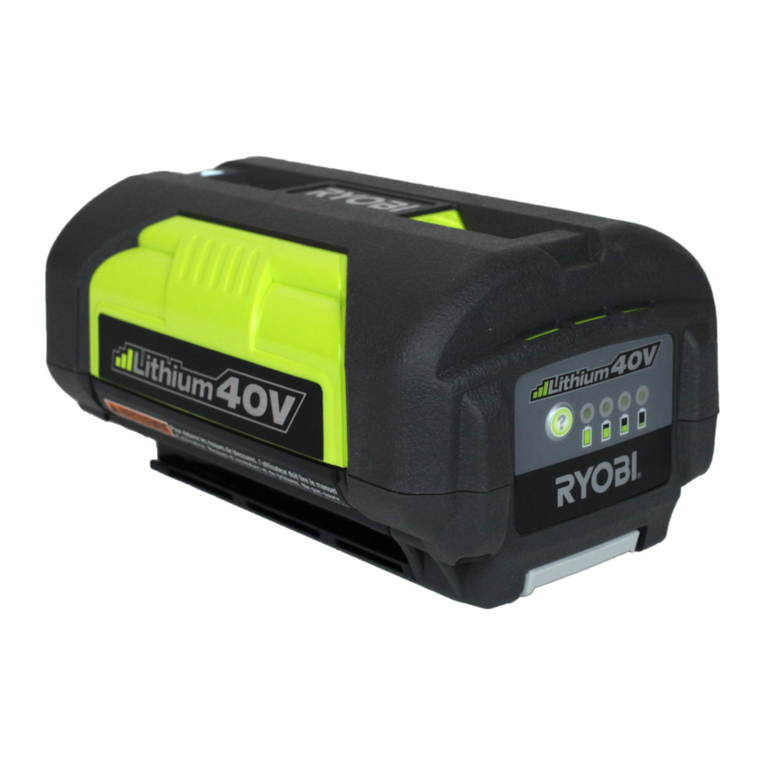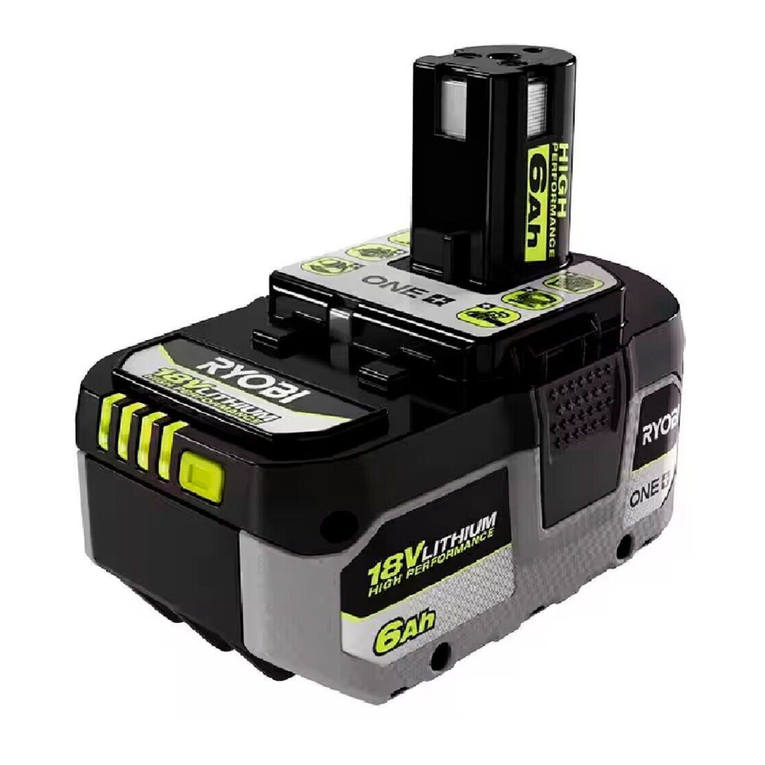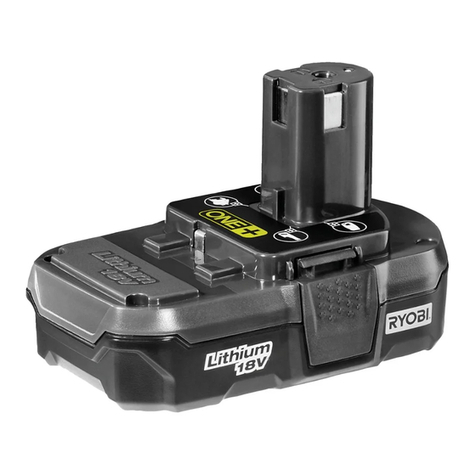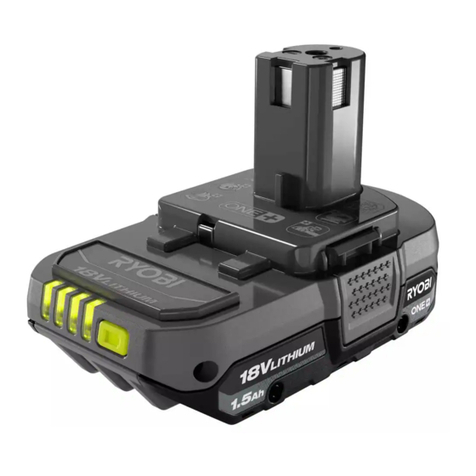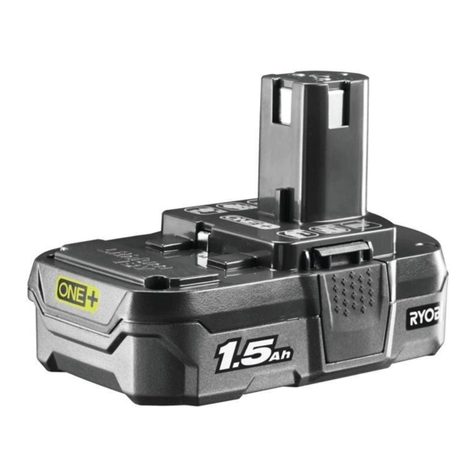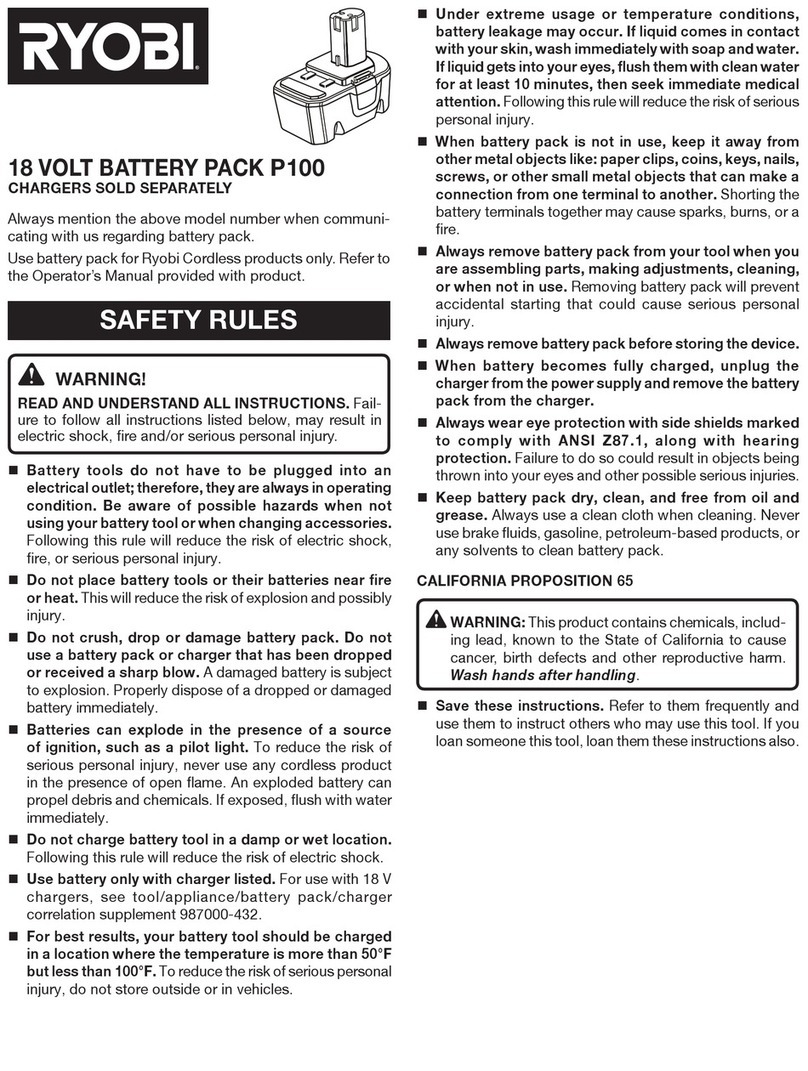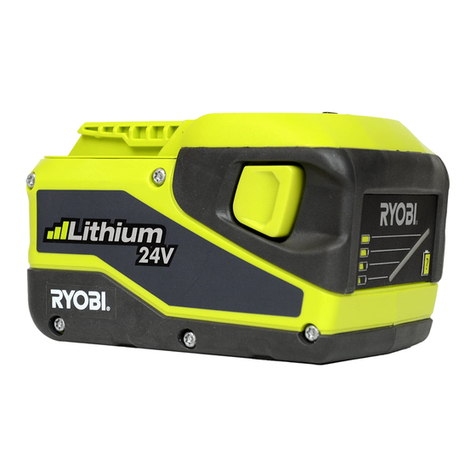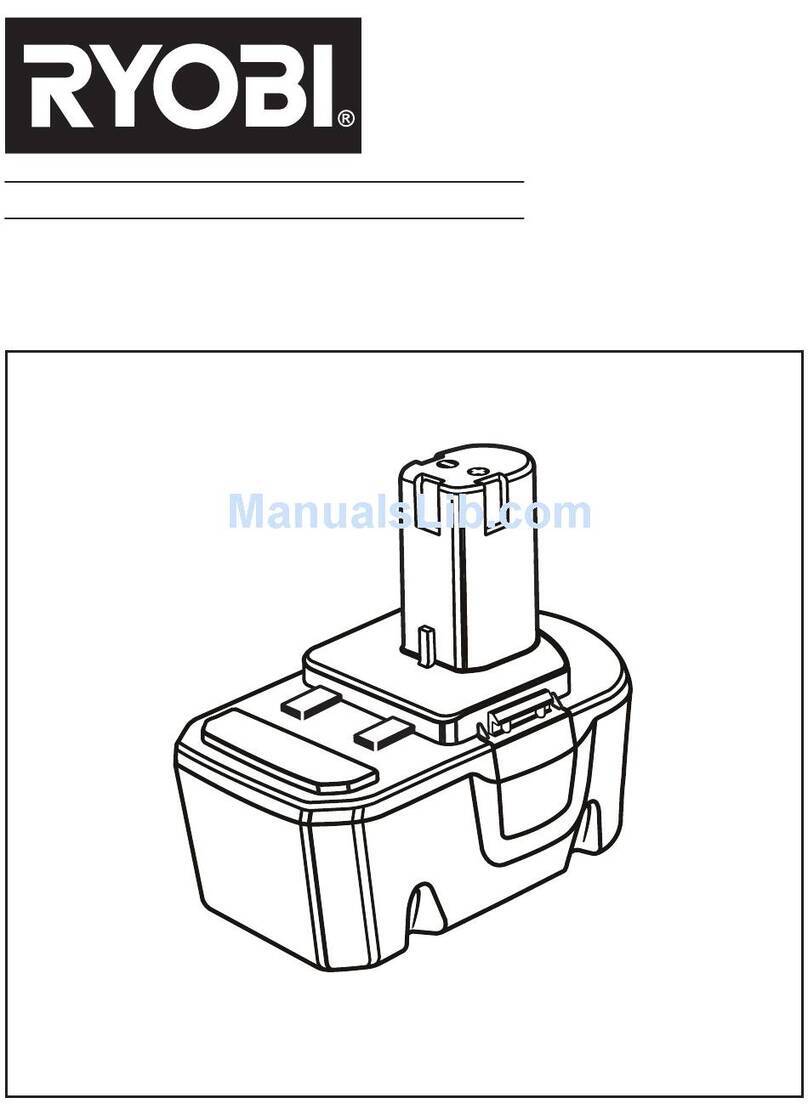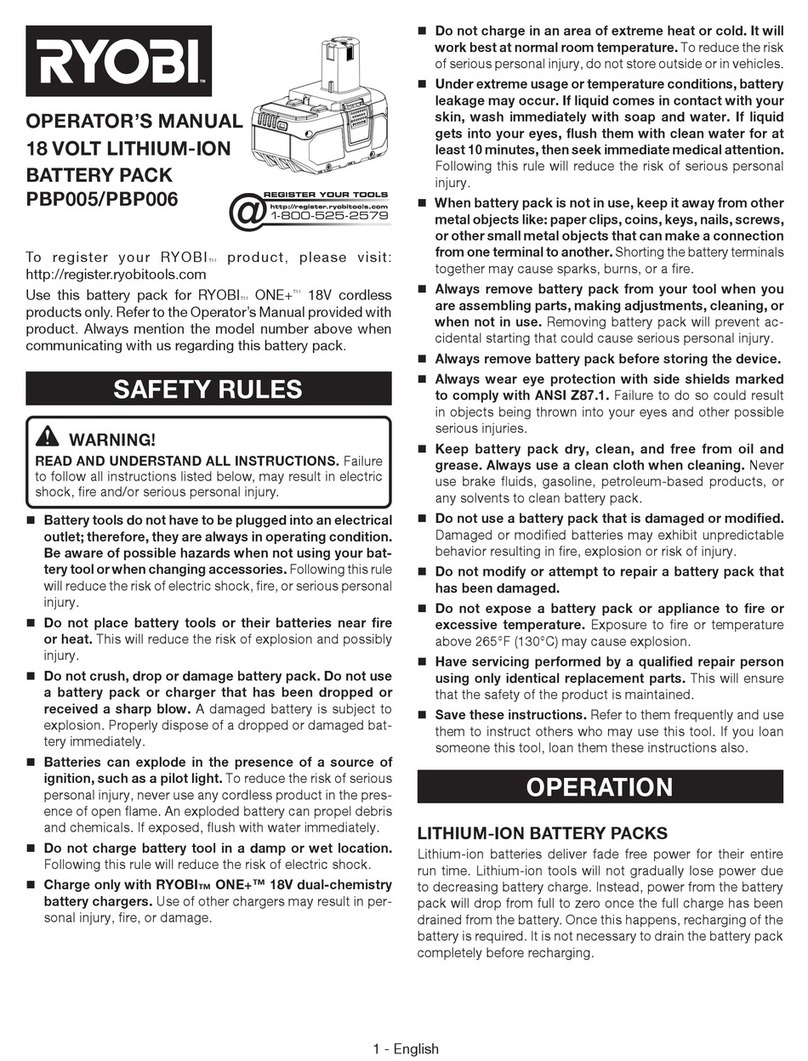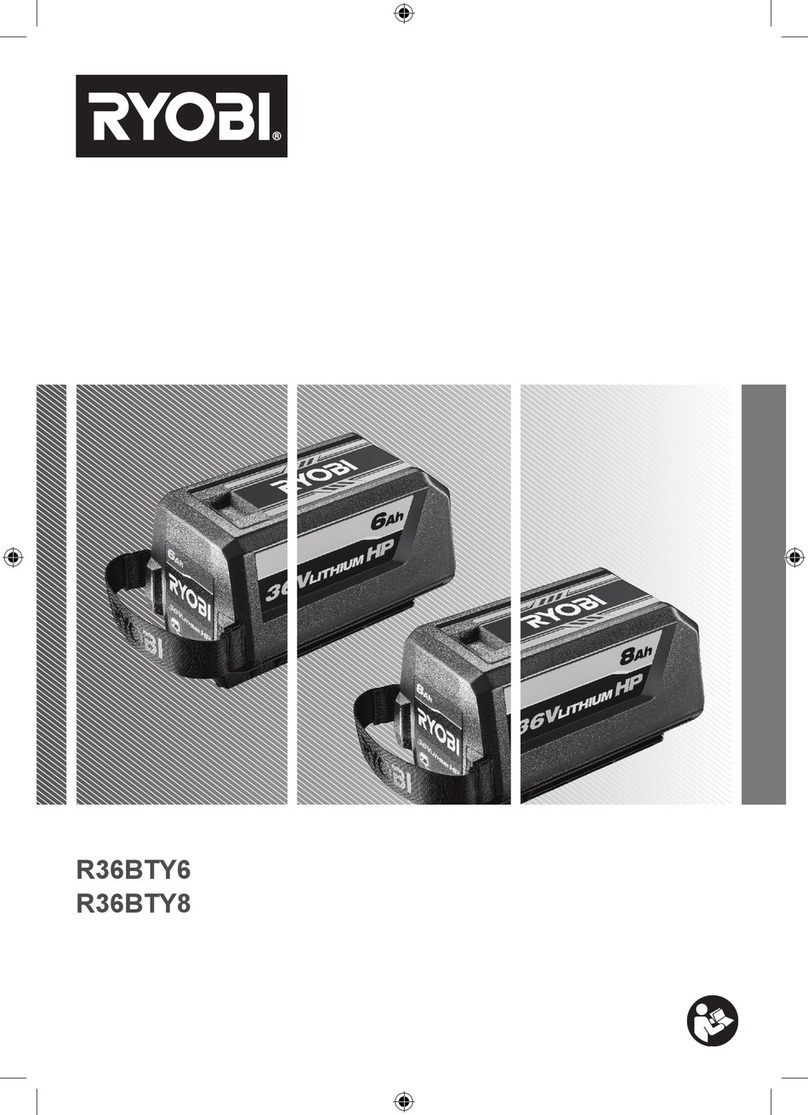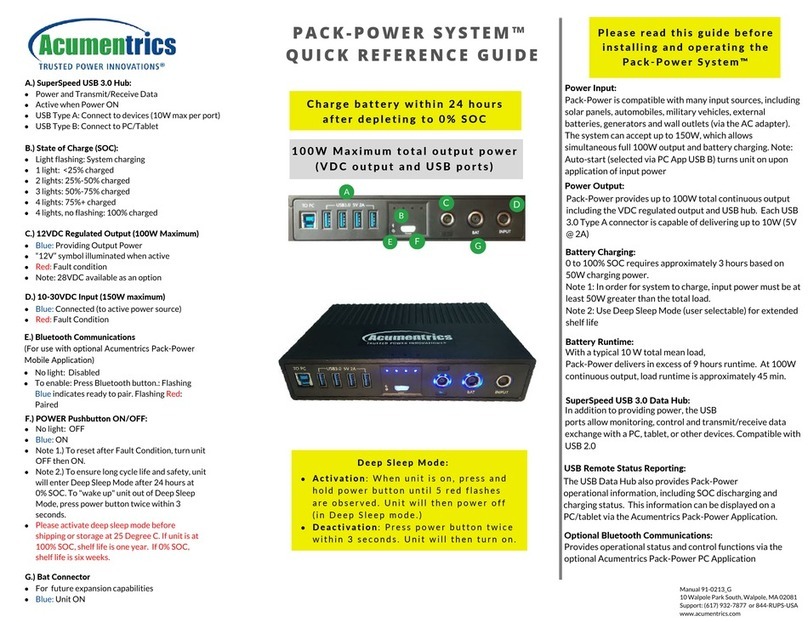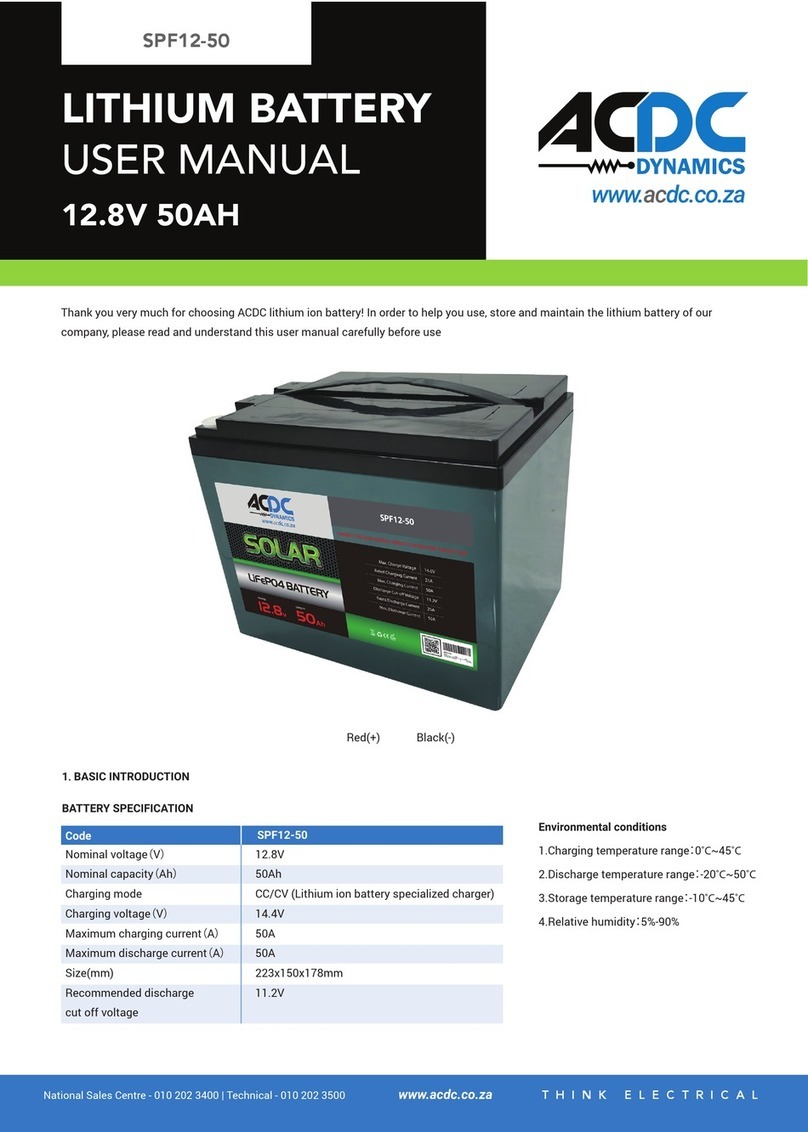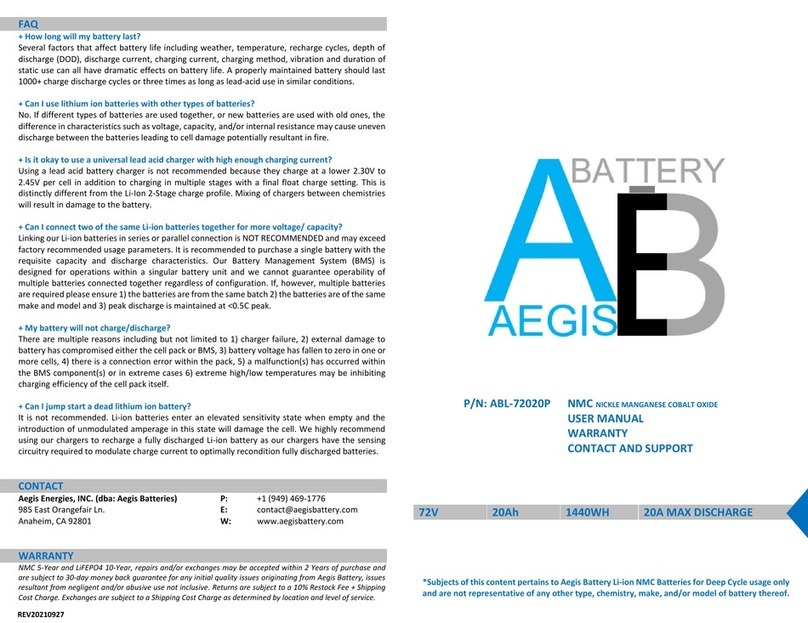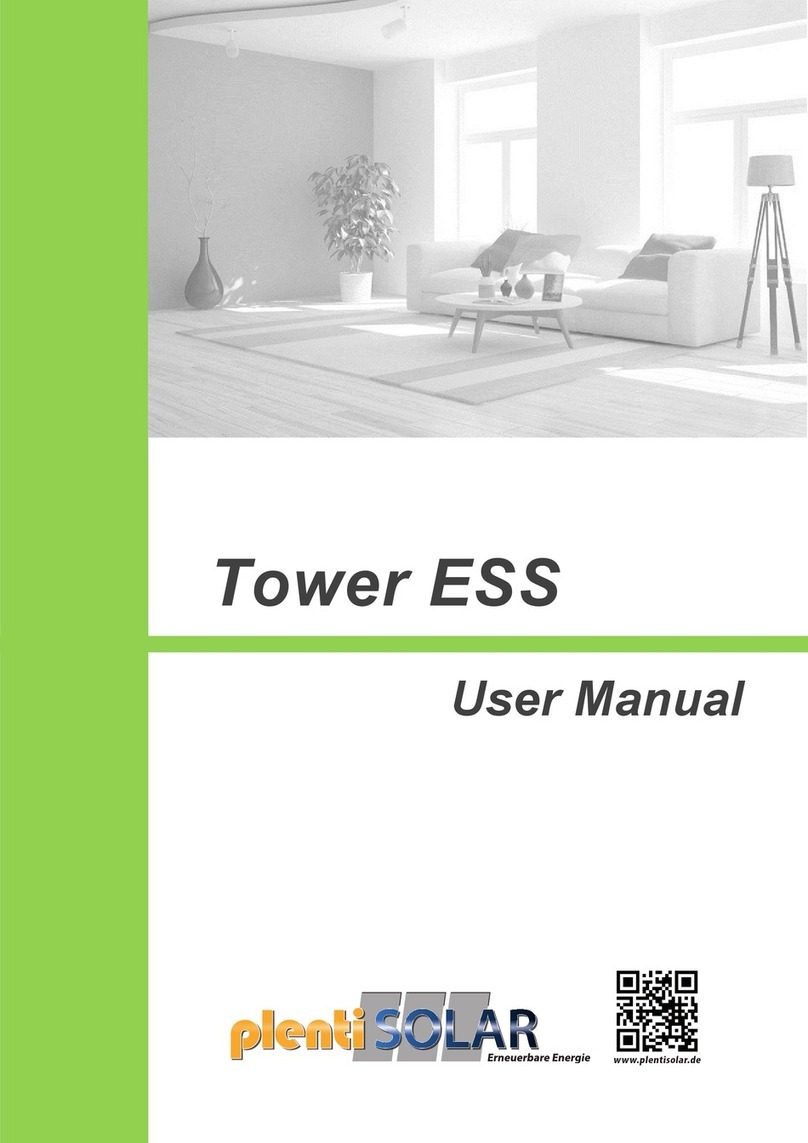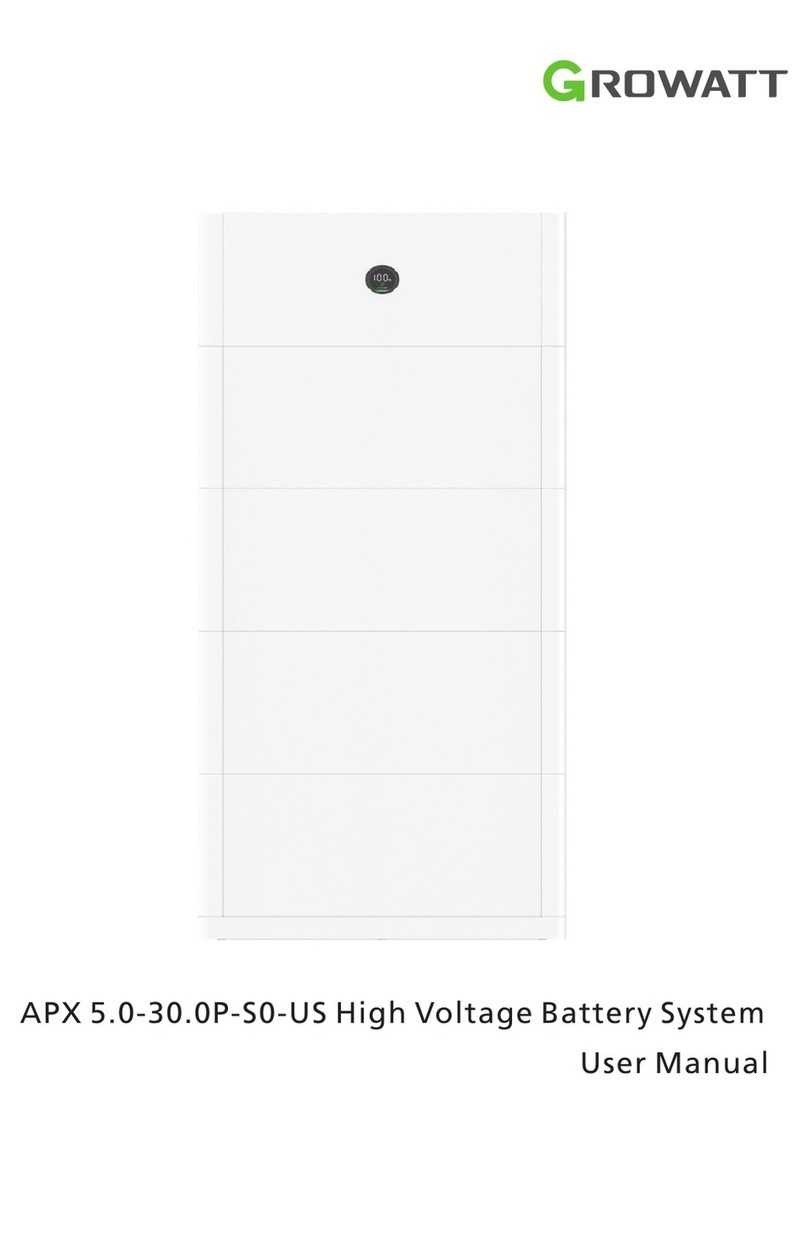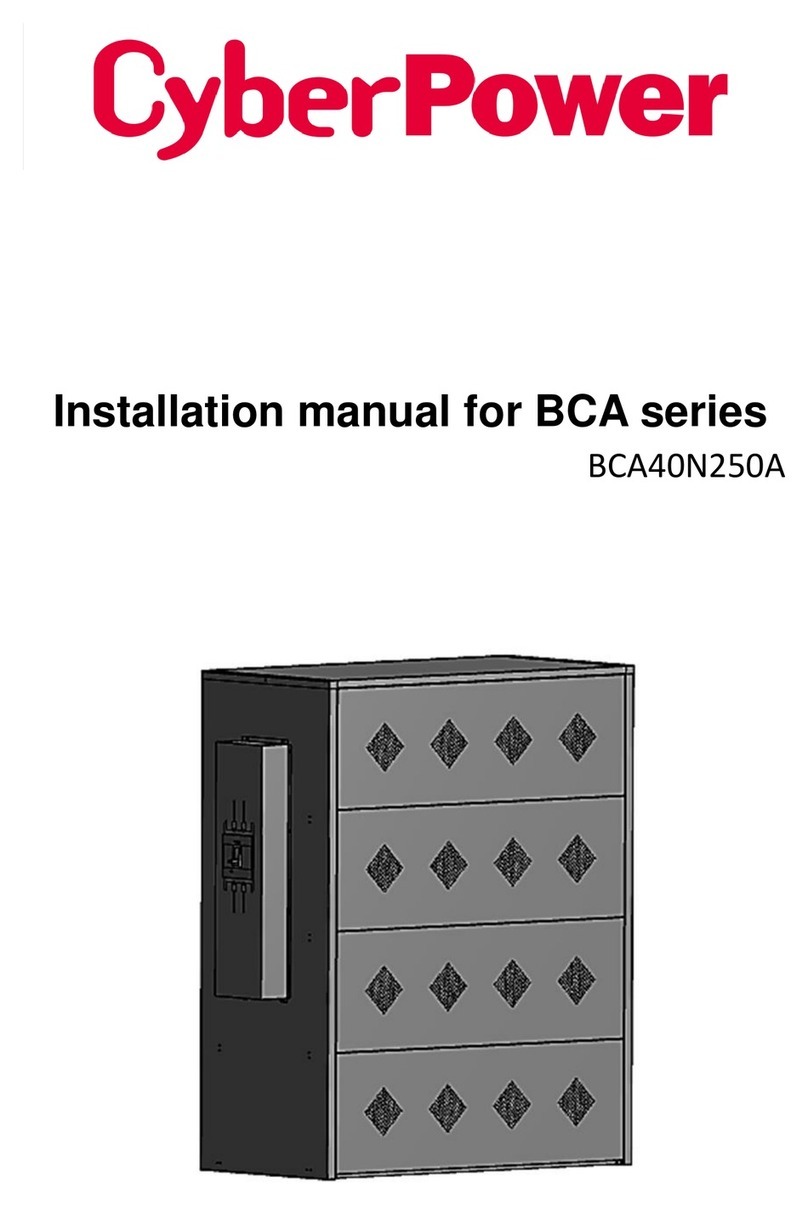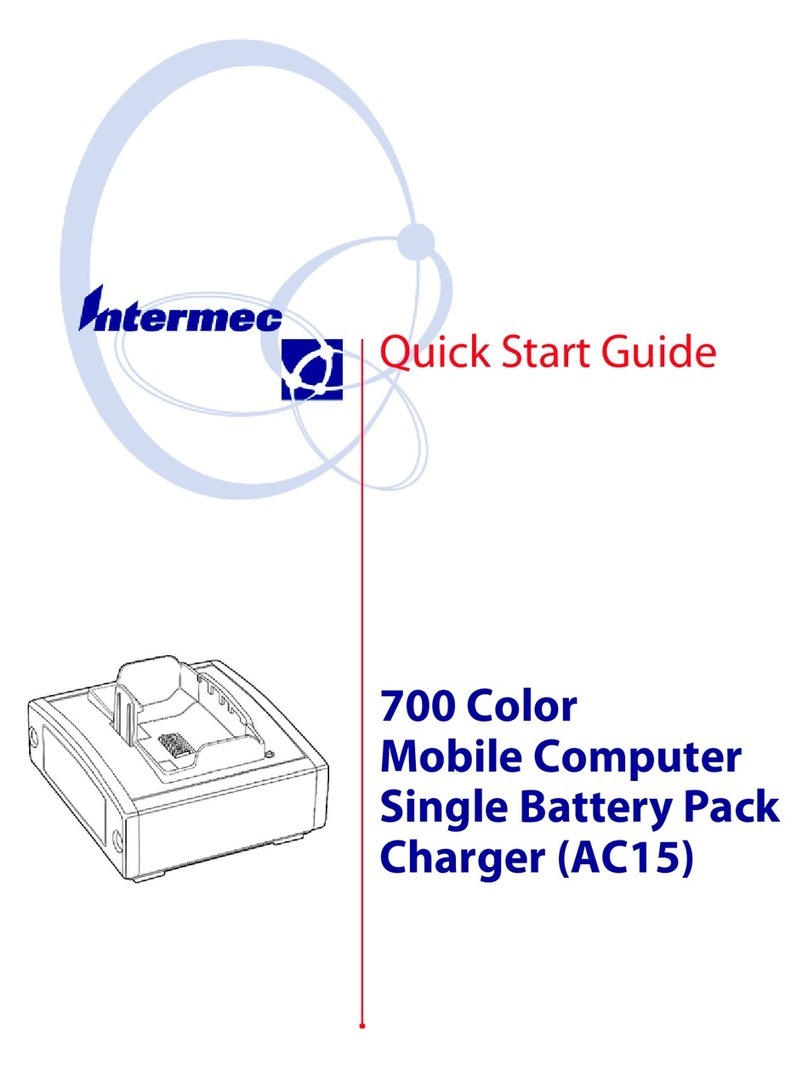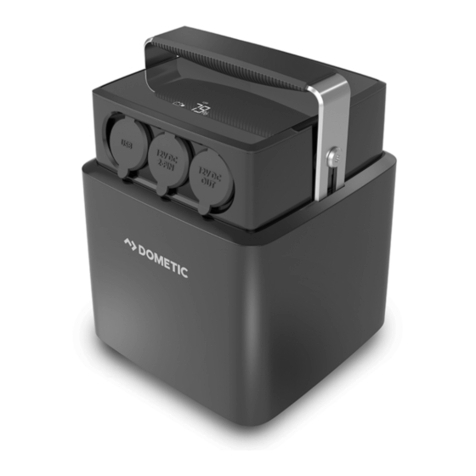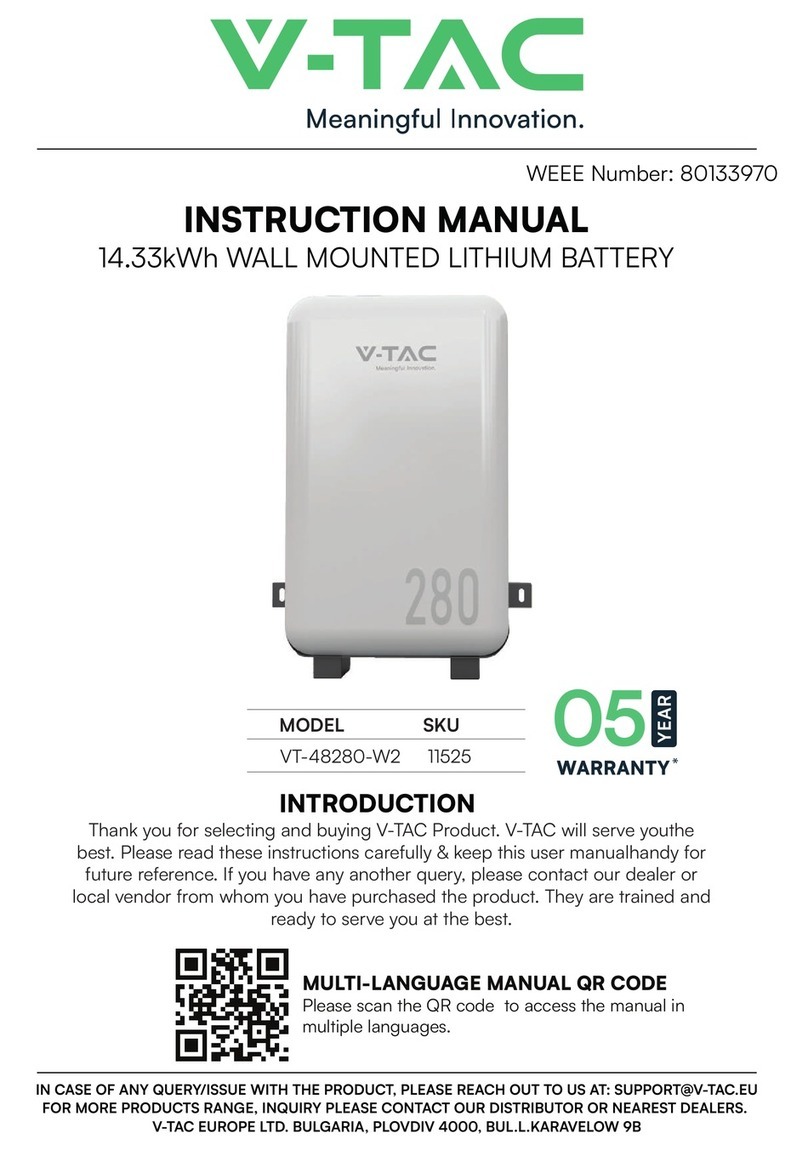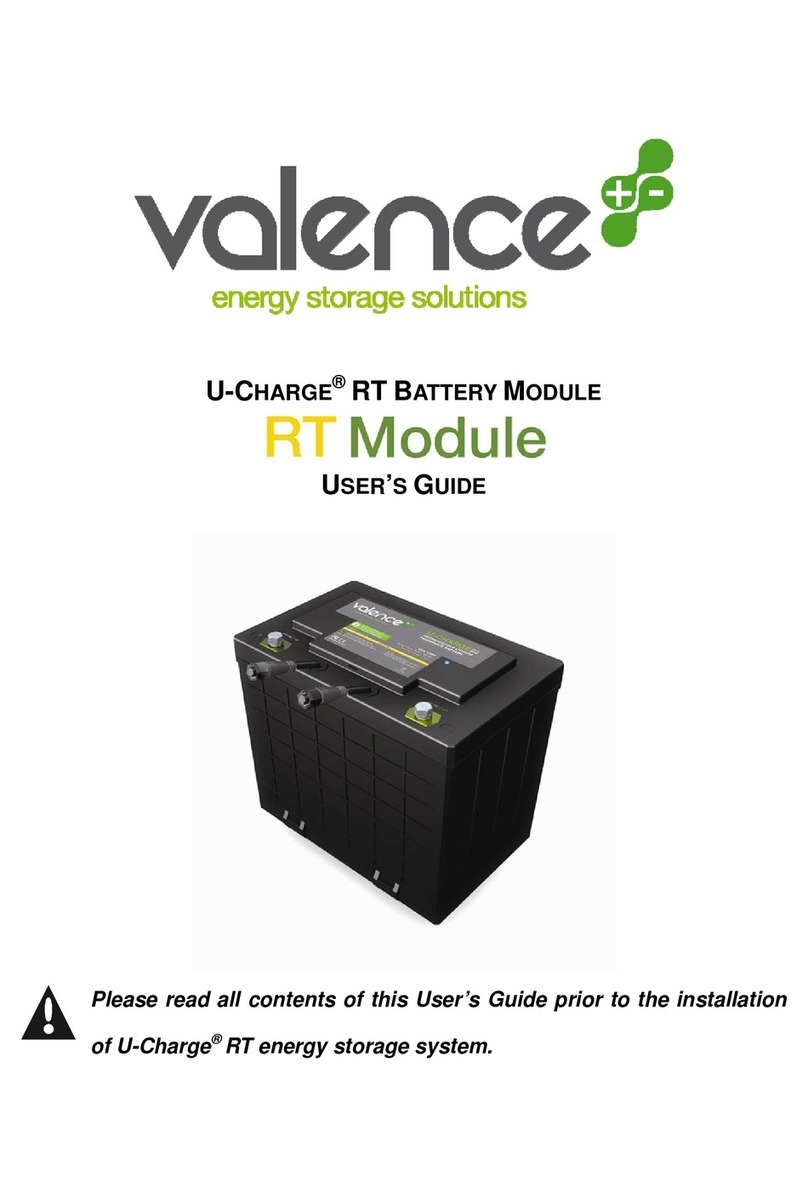
1
Save all warnings and instructions for future
reference.
The term "power tool" in the warnings refers to your
mains-operated (corded) power tool or battery operated
(cordless) power tool.
SAFETY INSTRUCTIONS
WARNING
To reduce the risk of re, personal injury, and product
damage due to a short circuit, never immerse your
tool, battery pack or charger in uid or allow a uid to
ow inside them. Corrosive or conductive uids, such
as seawater, certain industrial chemicals, and bleach
or bleach-containing products, etc., can cause a short
circuit.
The product is not intended for use by persons (including
children) with reduced physical, sensory or mental
capabilities, or lack of experience and knowledge, unless
they have been given supervision or instruction concerning
use of the product by a person responsible for their safety.
Children should be supervised to ensure that they do not
play with the product.
Please read and observe these instructions before using
the product.
■When battery pack is not in use, keep it away from
other metal objects such as paper clips, coins,
keys, nails, screws or other small metal objects
that can make a connection from one terminal to
another. Shorting the battery terminals together may
cause sparks, burns or fire.
■Do not place battery tools or their batteries near
fire or heat.This will reduce the risk of explosion and
possible injury.
■Do not crush, drop or damage battery pack. Do
not use a battery pack or charger that has been
dropped or received a sharp blow. A damaged
battery is subject to explosion. Properly dispose of a
dropped or damaged battery immediately.
■Batteries can explode in the presence of a source
of ignition, such as a pilot light. To reduce the risk
of serious personal injury, never use any cordless
product in the presence of open flame. An exploded
battery can propel debris and chemicals. If exposed,
flush with water immediately.
■Do not charge battery tool in a damp or wet
location. Following this rule will reduce the risk of
electric shock.
■For best results, charge the battery tool in a
location where the temperature is more than 10°C
but less than 37°C. To reduce the risk of serious
personal injury, do not store outside or in vehicles.
■Under extreme usage or temperature conditions,
battery leakage may occur. If liquid comes in
contact with the skin, wash immediately with
soap and water, then neutralize with lemon juice
or vinegar. If liquid gets into the eyes, flush them
with clean water for at least 10 minutes, then seek
immediate medical attention. Following this rule will
reduce the risk of serious personal injury.
TRANSPORTING LITHIUM BATTERIES
Transport the battery in accordance with local and national
provisions and regulations.
Follow all special requirements on packaging and labelling
when transporting batteries by a third party. Ensure that
no batteries can come in contact with other batteries or
conductive materials while in transport by protecting
exposed connectors with insulating, non-conductive caps
or tape. Do not transport batteries that are cracked or
leaking. Check with the forwarding company for further
advice.
RESIDUAL RISKS
Even when the product is used as prescribed, it is still
impossible to completely eliminate certain residual risk
factors. The following hazards may arise and the operator
should pay special attention to avoid the following:
■Use the product only for its intended use. Do not
alter or modify the product from the original design or
function.
■Always be aware that misuse and improper handling
of the product can cause injury to yourself and others.
INTENDED USE
Use the battery pack for Ryobi One+ 18V cordless
products only.
OPERATION
BATTERY PROTECTION FEATURES
Ryobi One+ 18V lithium-ion battery packs are designed
with features that monitor and protect the lithium-ion cells
(active, standby, shut off and sleep modes ) and maximize
battery life.
■The tool may stop during use to prevent overheating or
overloading of the battery (active mode). In this case,
release the trigger to reset and resume operation.
■If this does not reactivate the tool, the battery is
completely discharged (stand-by or sleep mode) and
needs to be charged in a compatible charger.
■The battery can be recharged in stand-by or sleep
mode. It is not necessary to completely discharge the
battery pack before recharging.

